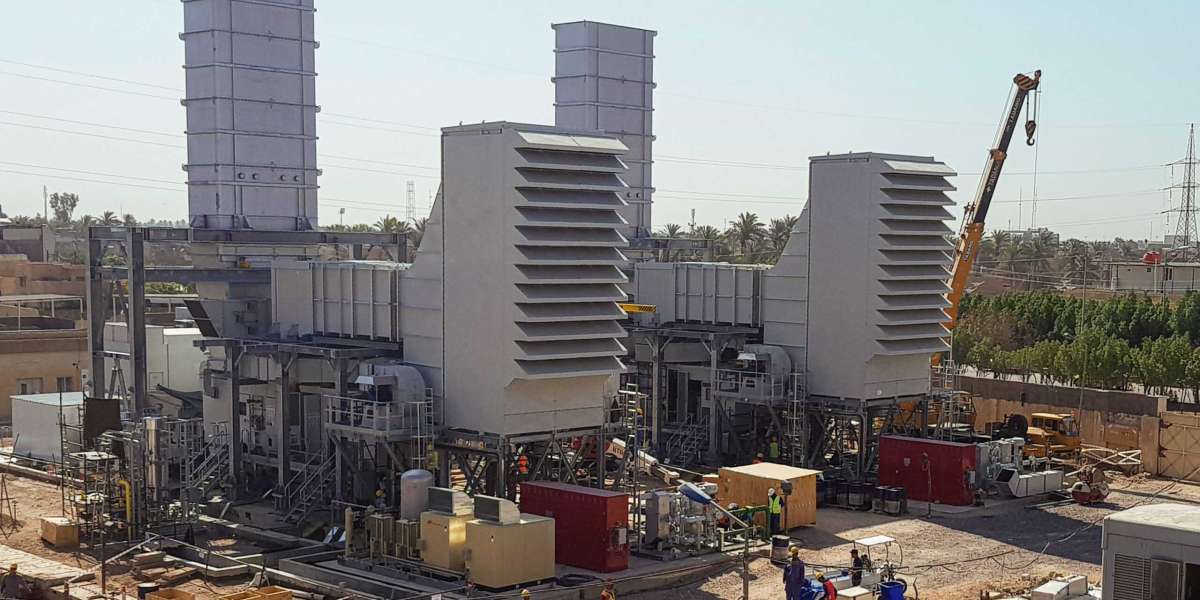In today's rapidly evolving industrial and infrastructure landscape, Electrical Systems EPC (Engineering, Procurement, and Construction) plays a vital role in ensuring efficient, reliable, and scalable power distribution and control. These systems form the backbone of modern development projects, spanning power plants, oil and gas facilities, manufacturing complexes, data centers, and large-scale commercial buildings. From design to deployment, Electrical Systems EPC solutions drive operational success by combining engineering precision with seamless execution.
Understanding Electrical Systems EPC
Electrical Systems EPC refers to the end-to-end process of engineering, procuring, and constructing electrical infrastructure within a project. It includes every facet of electrical systems, including illumination, grounding, automation, power generation, distribution of high and low voltage, and communication systems.
The EPC approach is particularly effective because it consolidates the responsibilities into one point of contact—typically a specialized contractor or company—who manages the entire lifecycle of electrical works. This ensures better coordination, minimized risks, streamlined communication, and adherence to budget and timelines.
Key Components of Electrical Systems EPC
- Engineering and Design
Electrical systems engineering involves detailed planning of power supply, control systems, load analysis, cable routing, and protection schemes. This phase also includes computer-aided designs (CAD), technical drawings, simulations, and safety compliance assessments. - Procurement
The procurement stage involves sourcing all components and equipment needed to execute the project. These may include switchgear, transformers, circuit breakers, cables, generators, and instrumentation panels. A key aspect of this stage is vendor management and ensuring equipment meets international standards and project specifications. - Construction and Installation
Once equipment is procured, the construction phase begins. This includes laying cables, installing switchboards, control panels, lighting systems, and performing integration with other mechanical or structural systems. Qualified electrical engineers and technicians handle the onsite work, ensuring installation follows safety protocols and project design. - Testing and Commissioning
Before handover, thorough testing and commissioning are conducted to ensure the electrical systems operate as intended. This phase includes performance testing, system protection validation, and compliance with regulatory standards.
Applications Across Industries
Electrical Systems EPC services are critical in a wide array of sectors:
- Oil Gas: From refineries to petrochemical plants, electrical systems are vital for powering pumps, compressors, safety systems, and instrumentation networks.
- Infrastructure Development: Airports, hospitals, malls, and stadiums rely on EPC-based electrical solutions for uninterrupted power and efficient energy management.
- Power Generation and Distribution: Whether in conventional plants or renewable energy projects, EPC services ensure smooth energy flow from generation to grid integration.
- Industrial Manufacturing: Facilities with heavy machinery and automation systems need robust electrical frameworks to maintain operational reliability and worker safety.
Benefits of EPC Approach in Electrical Systems
- Single Point Accountability: Clients benefit from having a single contractor responsible for the entire scope of electrical systems. This improves coordination and decision-making.
- Time and Cost Efficiency: Integrated project delivery reduces lead times and prevents budget overruns caused by fragmented responsibilities.
- Risk Management: Early identification of project risks during the design and procurement phases helps reduce potential delays or compliance issues.
- Customization and Scalability: EPC providers offer tailor-made solutions adaptable to future upgrades, expansions, or integration with digital technologies like SCADA or IoT.
- Quality Assurance and Safety: Consistent quality control, adherence to international safety norms, and rigorous testing ensure long-term system performance.
The Role of Technology in Modern EPC Solutions
With the rise of smart grids and digital transformation, modern Electrical Systems EPC providers are leveraging advanced tools such as:
- BIM (Building Information Modeling): To simulate and optimize electrical layouts before actual execution.
- Energy Management Systems (EMS): To monitor and control energy consumption.
- AI-based Predictive Maintenance: For real-time health monitoring of electrical components.
These innovations enhance system efficiency, reduce operational downtime, and support sustainability goals by optimizing energy use.
MUE Group: Delivering Excellence in EPC Services
In the Middle East and North Africa region, MUE Group has established itself as a trusted name in engineering services, particularly in the delivery of turnkey electrical and electromechanical EPC projects. With a client-focused approach, MUE Group ensures every project aligns with the highest industry standards, local regulations, and client objectives.
From substations and control rooms to full-scale industrial electrical frameworks, MUE Group's experienced teams manage each project from concept to commissioning with a strong commitment to safety, innovation, and performance excellence.
Conclusion
Electrical Systems EPC is more than just a technical service—it's a strategic approach to infrastructure development that integrates engineering expertise, procurement acumen, and precise construction practices. As industries continue to expand and evolve, the need for reliable electrical systems that meet performance, safety, and sustainability standards is more crucial than ever.
By choosing the right EPC partner, organizations can ensure that their electrical systems are not only functional but also future-ready. Whether it's powering a new industrial plant or upgrading an urban infrastructure, Electrical Systems EPC remains at the heart of modern engineering progress.



